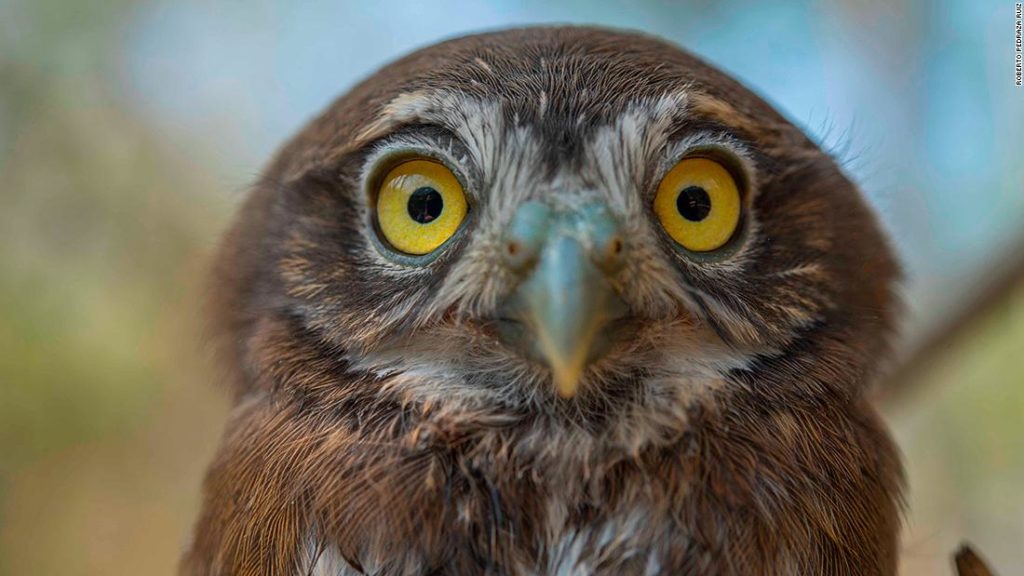(CNN) — Growing up in the remote mountains of Sierra Gorda, Mexico, Roberto Pedraza Ruiz developed a serious case of biophilia.
A term coined by biologist Edward O. Wilson, biophilia — meaning “love of life” — describes the human need to connect with nature.
Pedraza Ruiz — now a conservationist and photographer — moved from the bustling central Mexican city of Queretaro to Sierra Gorda, in 1984, when he was nine years old.
The mountain range covers more than 380,000 hectares — more than twice the size of Greater London. Its landscapes span rugged mountains, arid deserts and misty cloud forests.
Pedraza Ruiz recalls spending his childhood there collecting mushrooms, looking for salamanders and jaguars and raising horses and cows. Sierra Gorda felt like the place he was meant to be.
“I’m a very endemic creature,” he tells CNN. “I really think that I belong to these mountains and that’s it.”

Sierra Gorda looking its most resplendent in the early morning light.
Roberto Pedraza Ruiz
Helping people, helping nature
Pedraza Ruiz’s biophilia runs in the family.
His mother is the award-winning conservationist Martha “Pati” Ruiz Corzo — considered the region’s environmental sheriff.
Appointed by the then-Mexican President Ernesto Zedillo, Corzo served as the Reserve’s director for 14 years.
The group works to conserve nature while also improving the lives of economically-deprived local communities. “Ninety-seven percent of the land is the private land of 637 communities,” she explains. “You have to give them an opportunity because that’s all they have.”
Corzo believed the key was to empower local people to look after Sierra Gorda’s natural resources and land, turning them away from unsustainable industries like logging by developing economic opportunities including reforestation, education, ecotourism, carbon footprint compensation and waste management.
Her efforts were a remarkable success.
Now, Sierra Gorda is thriving. According to Pedraza Ruiz, the region is home to 345 species of birds, 111 different mammals, 134 different reptiles and amphibians, and around 2,400 plant species.
With landscapes ranging from deserts to tropical forests, Sierra Gorda is one of Mexico’s top biodiversity hotspots. Martha “Pati” Ruiz Corzo moved her family there in 1984 and started a non-profit conservation group to save the region from the impact of human activity. Today, she may be its most trusted protector.
The next generation
Pedraza Ruiz, now 45, works alongside his family to protect the ancient forests he grew up in.
“(My parents are) the biggest examples for me. It’s hard to keep up with their pace, but I do my best,” he says.
Pedraza Ruiz oversees Sierra Gorda Ecological Group’s land conservation program, doing everything from building fences to keep cattle at bay, to patrolling the forests for illegal activities. He says his work makes a difference. Outside the reserve, “you can see illegal logging, cattle ranching, and forests fires,” he says.
He’s also an award-winning photographer, who showcases the wild beauty of his home to the world.

Pedraza Ruiz rescued this gorgeous kinkajou, which had strayed into an orchard, and released it in the forest.
Roberto Pedraza Ruiz
“Nobody (realizes that) in central Mexico we have all this diversity,” he says. Photography is “a way to share why Sierra Gorda is so important.”
Scroll through the gallery at the top to see Pedraza Ruiz’s stunning photographs of Sierra Gorda.
You may also like
-
Afghanistan: Civilian casualties hit record high amid US withdrawal, UN says
-
How Taiwan is trying to defend against a cyber ‘World War III’
-
Pandemic travel news this week: Quarantine escapes and airplane disguises
-
Why would anyone trust Brexit Britain again?
-
Black fungus: A second crisis is killing survivors of India’s worst Covid wave

